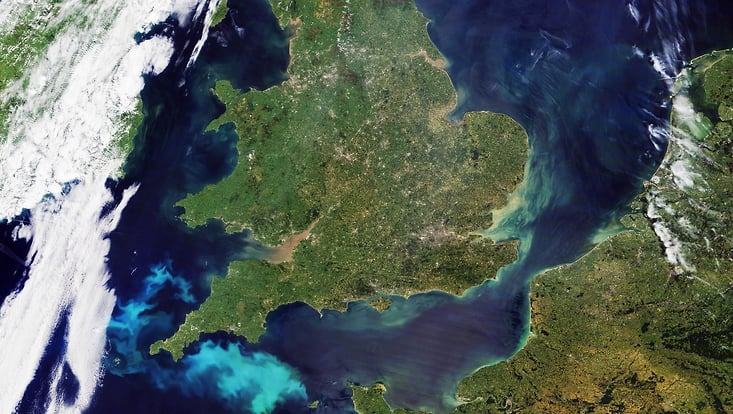and Society (CLICCS)
Tides reduce marine CO2 uptake
11 February 2025, by Franziska Neigenfind

Photo: NASA/GSFC
The ocean absorbs massive amounts of CO₂ from the atmosphere, helping to slow climate change. Tides have a major impact on the mixing, distribution and storage of CO2 in water, as they influence water currents and stratification alike. A team led by Dr. Jan Kossack recently calculated the tides’ influence on carbon dioxide transfer between the atmosphere and ocean for the Northwest European Shelf, a group of coastal seas that encompasses the North Sea and parts of the Atlantic near Great Britain and Ireland.
The researchers combined specific computer models capable of simulating the ecosystem and the physical and biogeochemical conditions within it, including the tides. Drawing on this modelling system, they then compared simulations with and without the tides and found striking differences: the tides reduced CO2 absorption by ca. 13 percent. However, this effect also varied: in the North Sea, the tides particularly intensify the mixing of the water, which reduces CO2 uptake, whereas in the Celtic Sea, the reduction is due to the tides’ influence on currents.
In the future, climate change could produce changed tides – say, due to rising sea levels. This would also affect the ocean’s ability to absorb CO2. As the study clearly shows: tides and their various interactions with the carbon cycle are important factors that need to be considered in the future.
The article was published in the CLICCS Quarterly magazine, the research news from the Cluster of Excellence "Climate, Climatic Change, and Society".
Publication
Kossack J, Mathis M, Daewel U, Liu F, Demir K, Thomas H and Schrum C (2024:) Tidal impacts on air-sea CO2 exchange on the North-West European shelf, Frontiers, Sec. Marine Biogeochemistry, volume; 11, DOI 10.3389/fmars.2024.1406896


